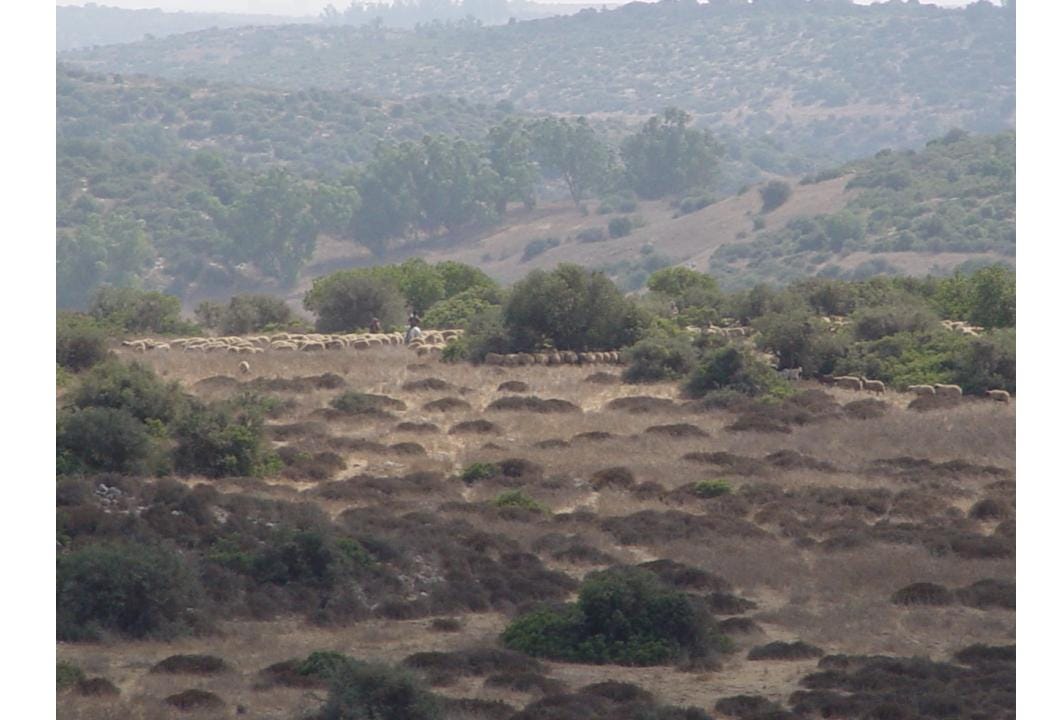We have journeyed so far from Israel’s Mediterranean Coast, where we arrived in Tel Aviv, to the east across the nation’s seacoast plain, up to the foothills of the mountain range that stretches from Israel’s north to its south, where David met and defeated the Philistines in battle with their giant champion Goliath. Instead of continuing into the mountains to the nation’s ancient seat Jerusalem, we turned toward the south, on our way to Israel’s southern Judaean desert wilderness.
Today, we reach one of the last lowland towns Moresheth Gath, before entering Israel’s southern desert region. The prophet Micah was born in the lowland town Moresheth Gath southwest of Jerusalem. Moresheth was one of the last towns a traveler would reach when leaving Jerusalem for the south and perhaps beyond to Egypt. One had better stock up for the desert wilderness travels.
God gave Israel the Promised Land, which in its fertile central lowlands was indeed a land of flowing milk and honey. But God was still a God of the mountain and a God of the desert, a shepherd who knew how to plant and water desert land to make a garden out of the desert. God is our shelter and refuge in the desert. His waters run deep in the desert, ready to burst forth to water a lush garden.
Our world may leave us dry and dusty. Parched lips crave constant watering. And then God floods the desert, turning it into a garden. The prophet Micah, of the boundary lowland town Moresheth, gave one of the clearest prophecies of the coming Savior Jesus Christ from Bethlehem. Christ is indeed our water in the desert.
Are you keeping your eye open for the Savior in your lowland town on the edge of the desert? That’s where you’ll find him, close to your humble home. Tomorrow we proceed into the desert.






